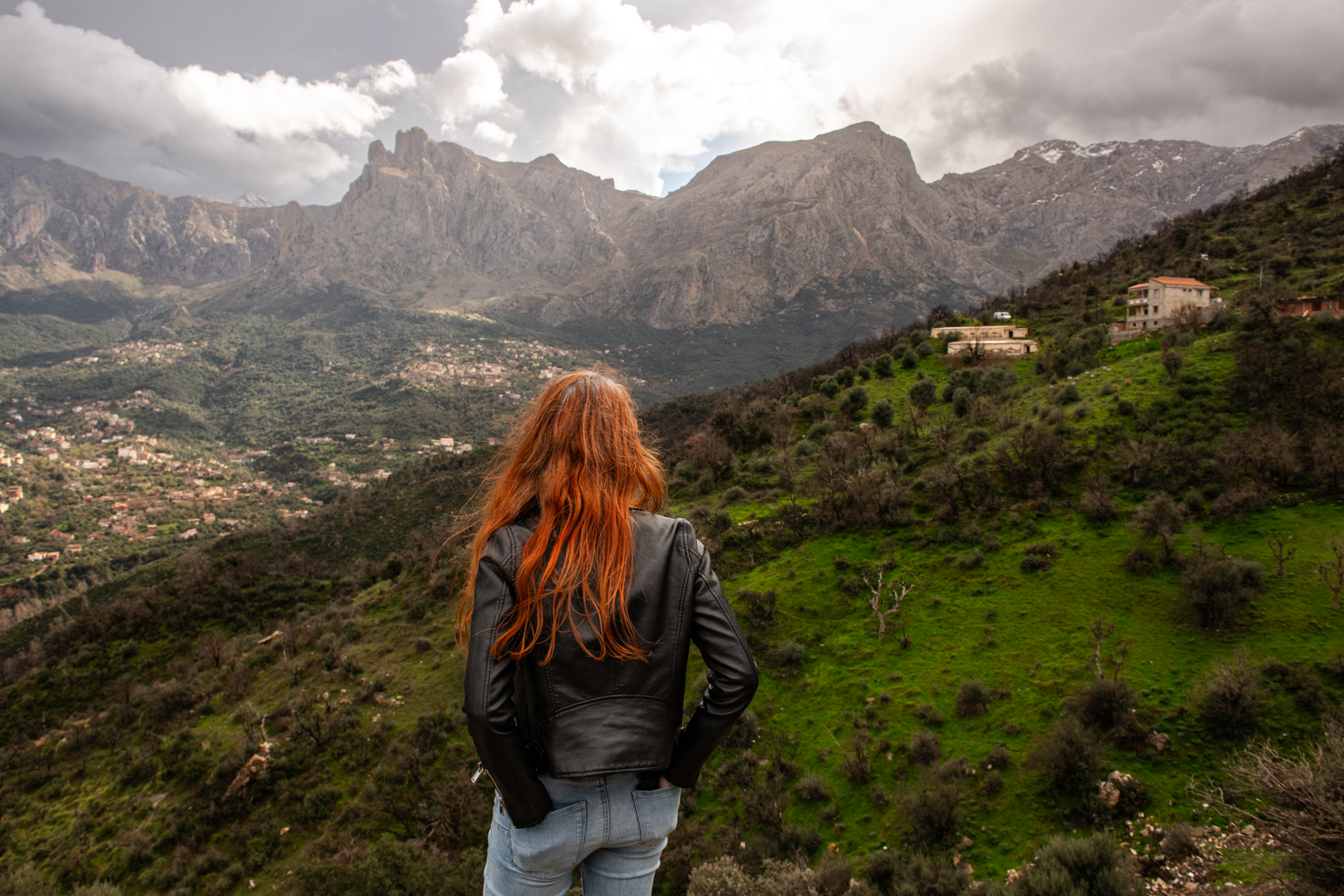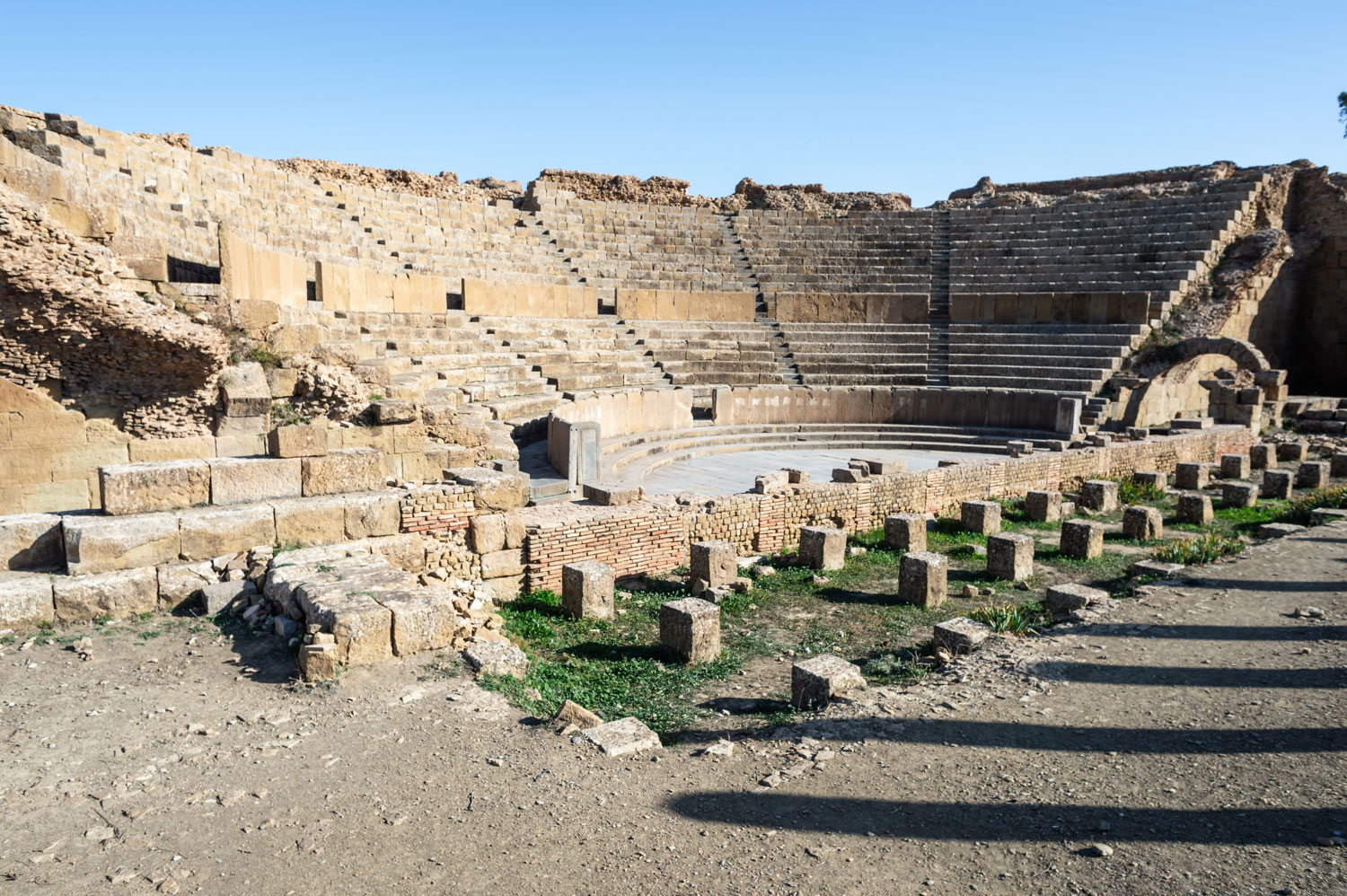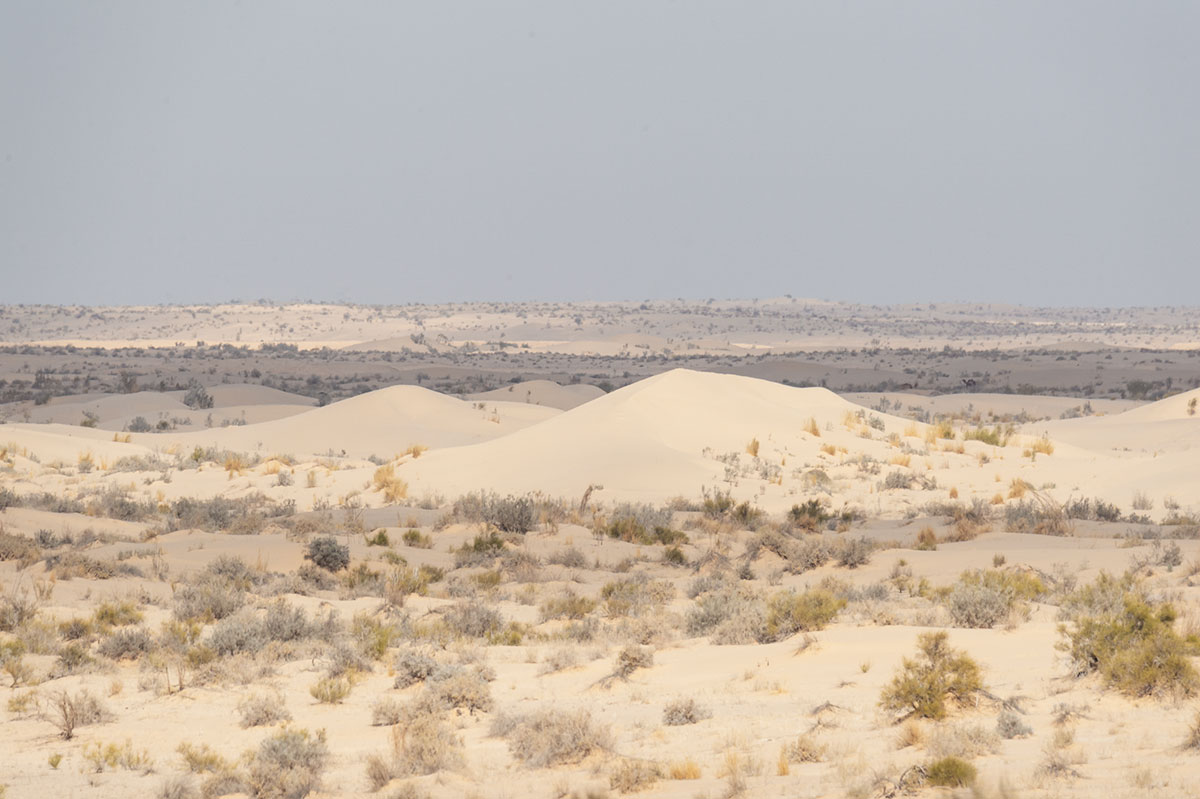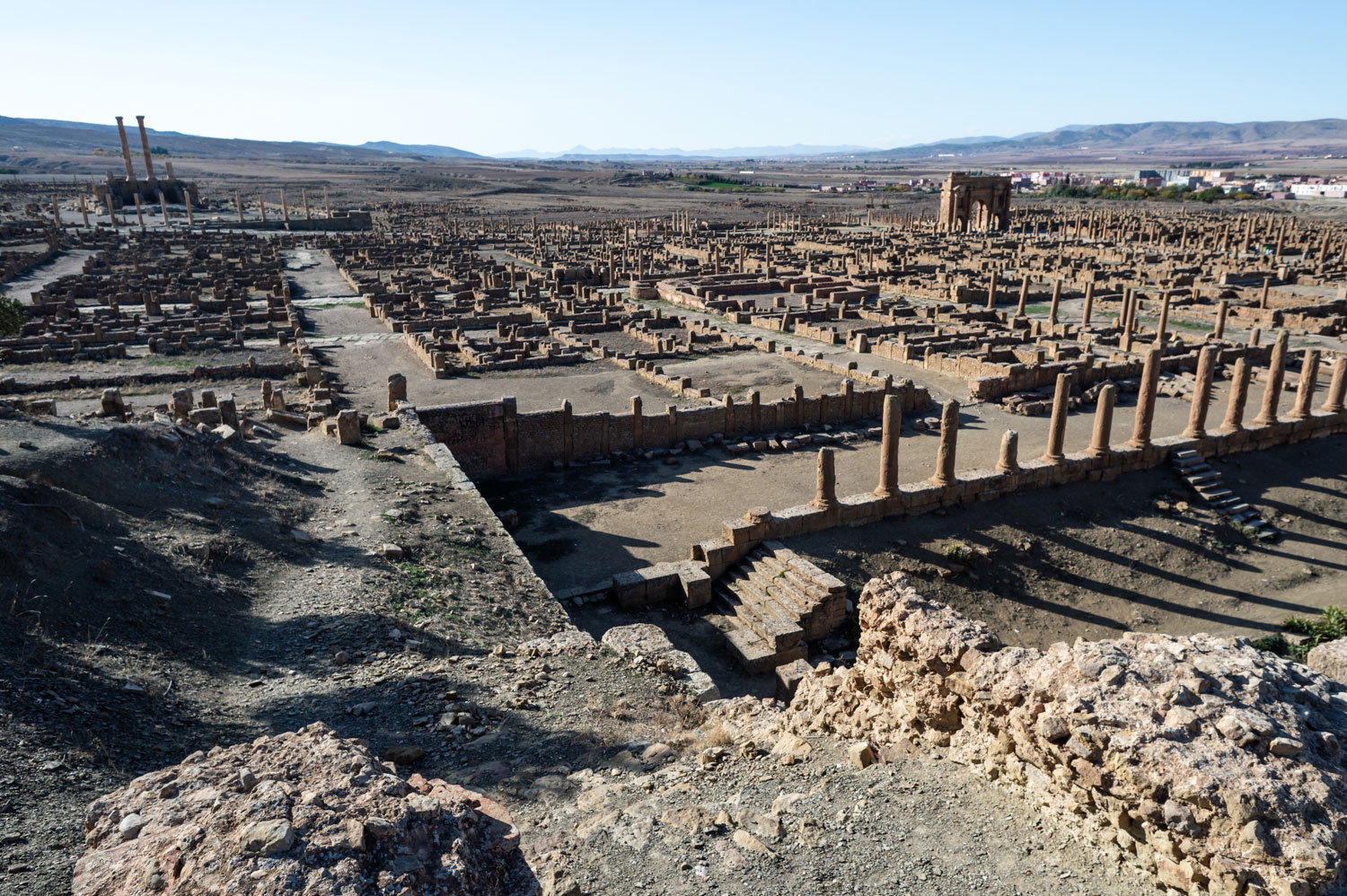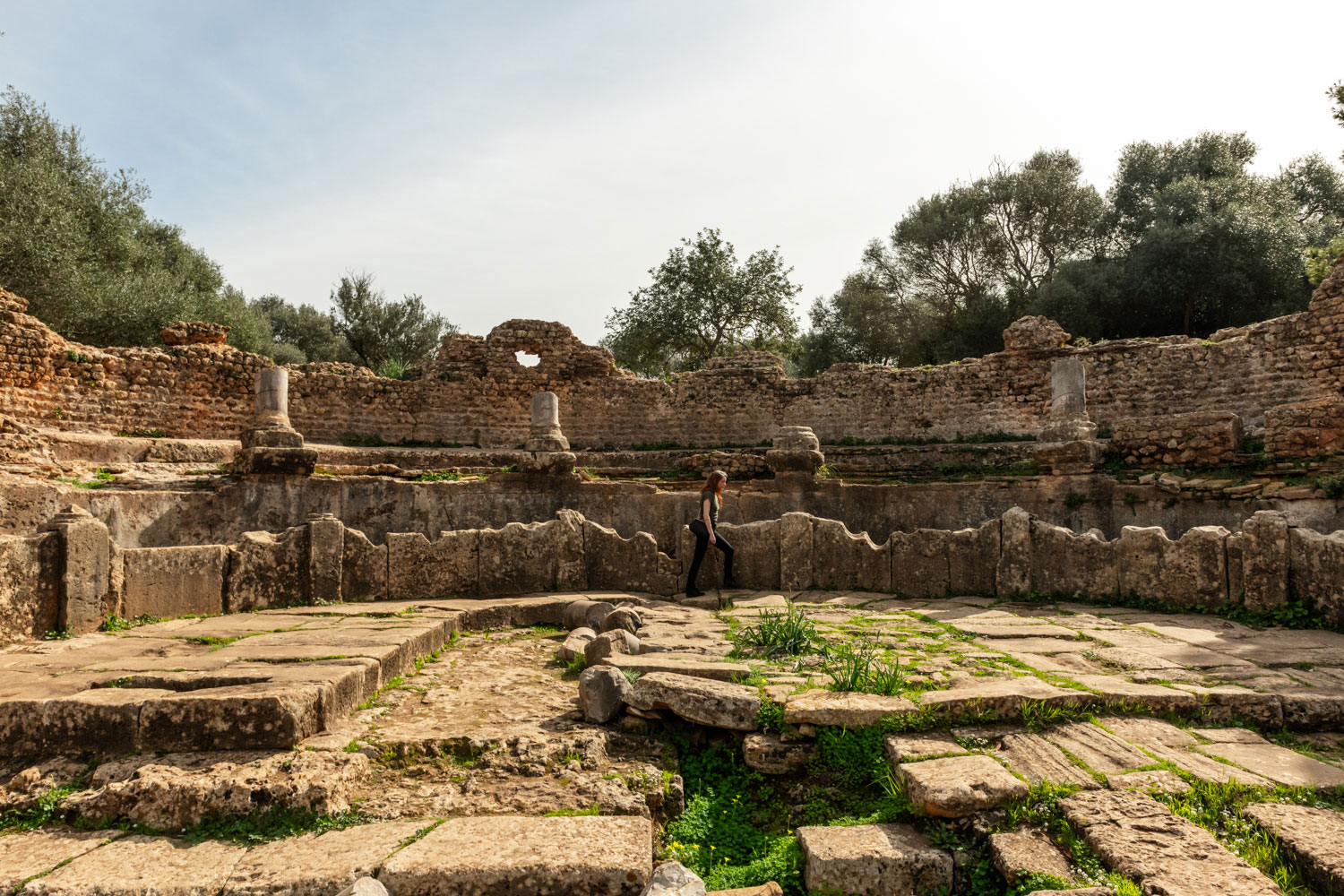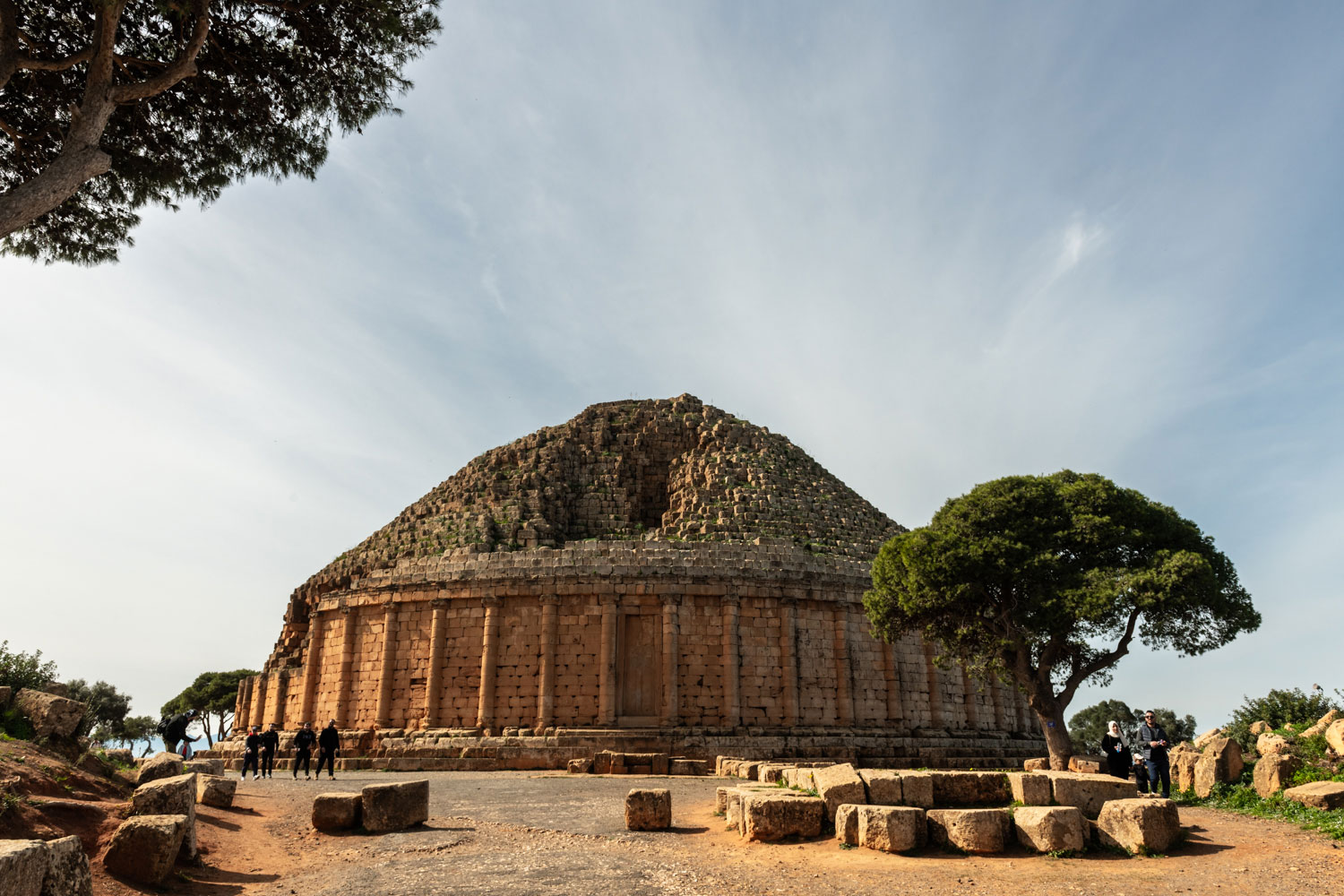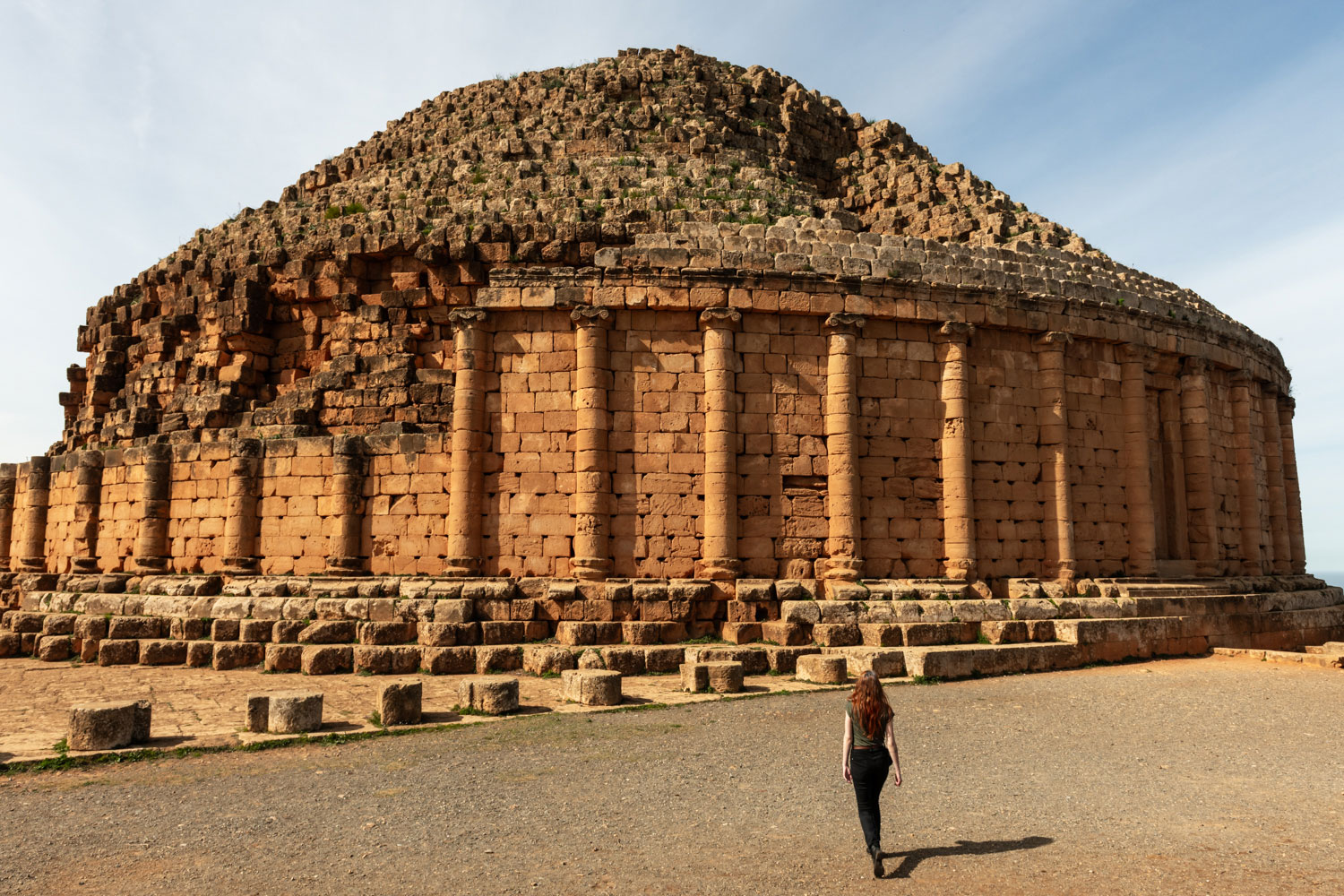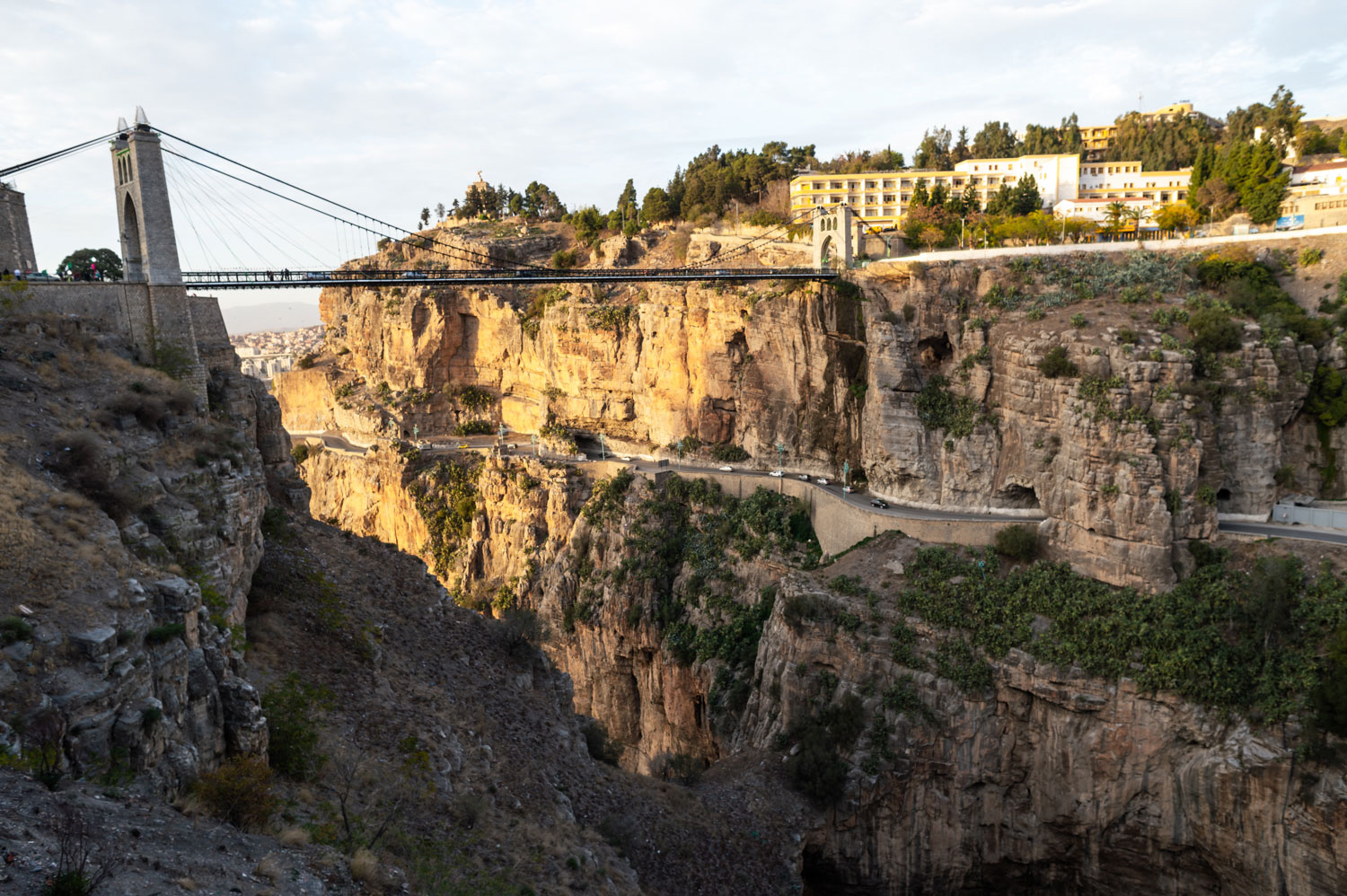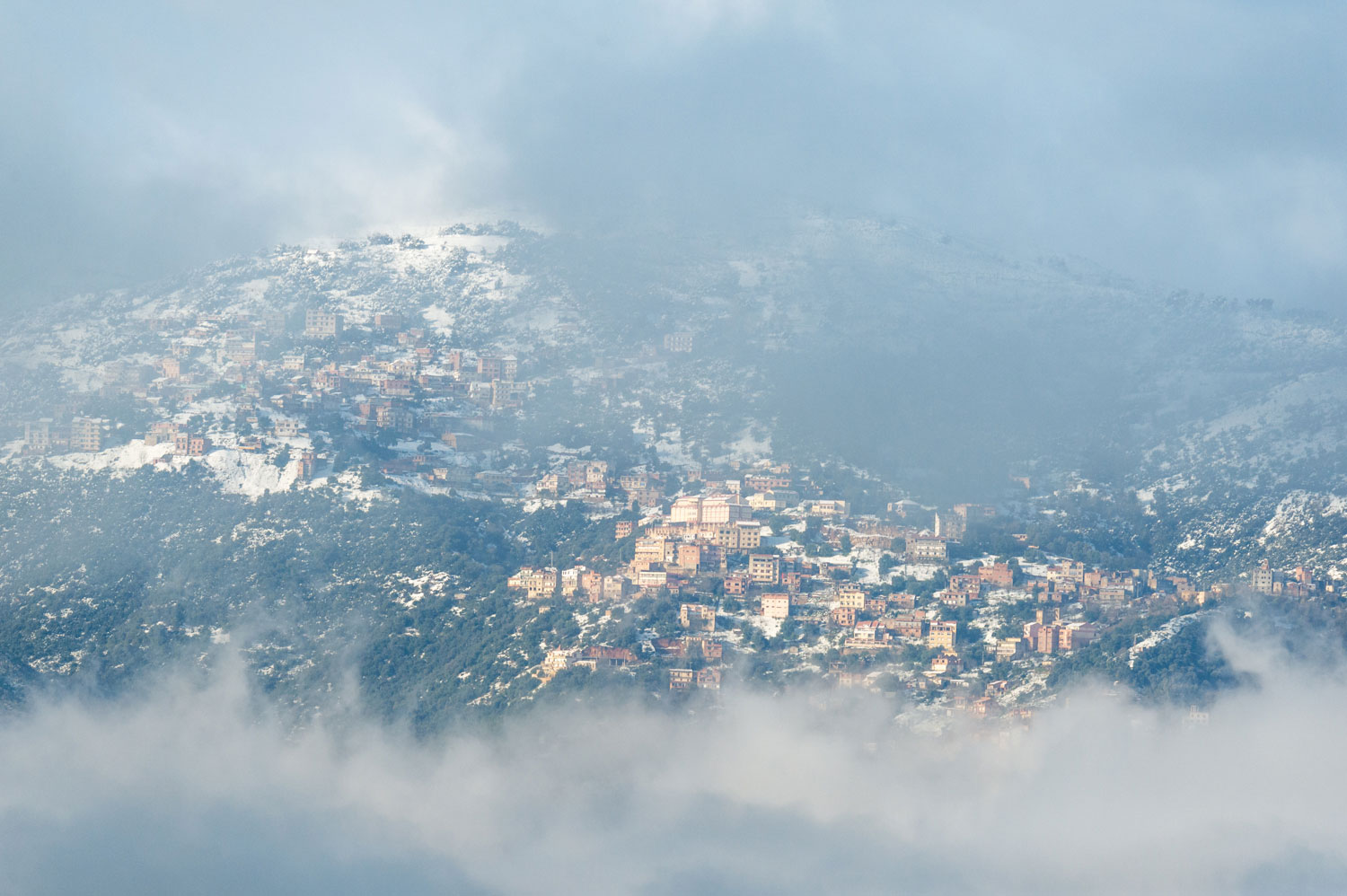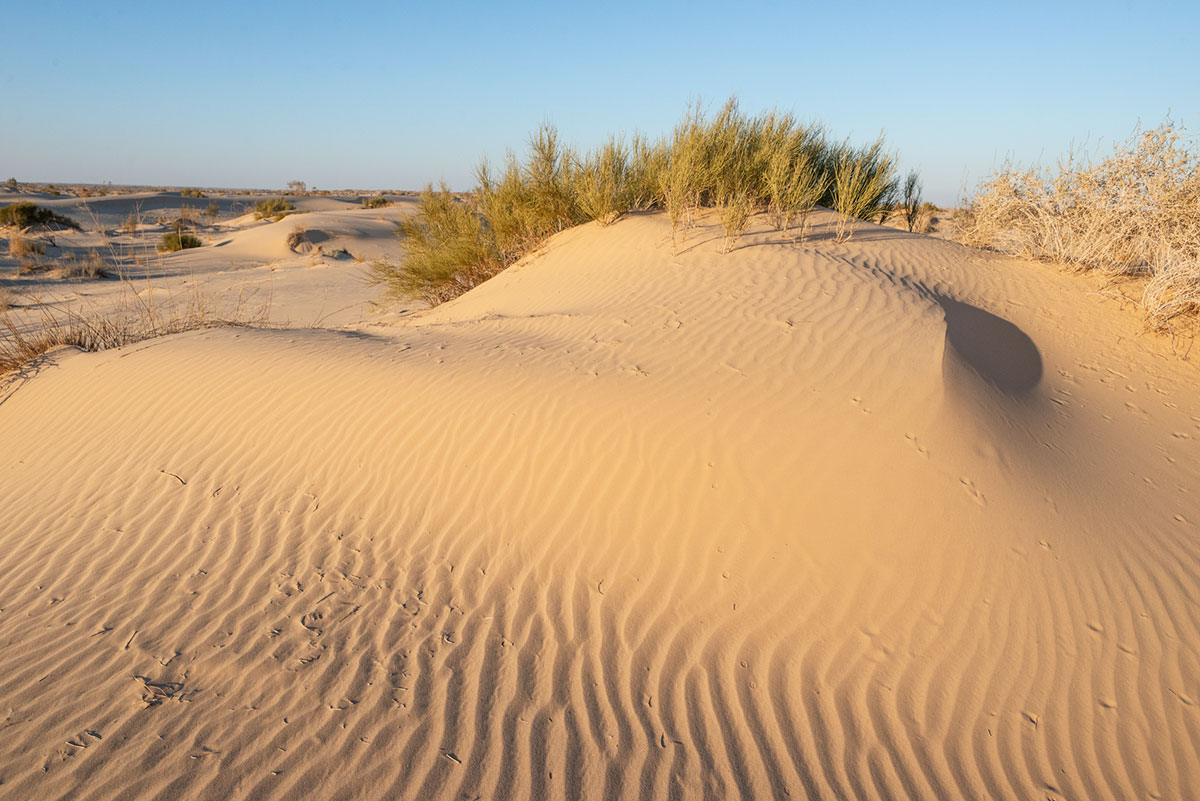Trip to Algeria: the complete guide
- 1 Presentation of Algeria
- 2 Trip to Algeria: What you need to know
- 2.1 Formalities and visas for your trip to Algeria
- 2.2 Airlines and air tickets
- 2.3 Accommodation
- 2.4 Local currency
- 2.5 Languages spoken in Algeria
- 2.6 Getting around in Algeria
- 2.7 Safety and security
- 2.8 What/where to eat?
- 2.9 How do you use your smartphone when travelling in Algeria?
- 2.10 Technology / electricity standards
- 3 When is the best time to make a trip to Algeria?
- 4 What to do and see when making a trip to Algeria?
- 5 What not to do when making a trip to Algeria
Algeria is an incredible country that very few people have had the chance to visit. Because the country is not open to tourism like Tunisia or Morocco, a certain mistrust has built up over the years. But what is Algeria really like, a country four times the size of France? Is it possible to make a trip to Algeria? What do you need to bring? What sort of welcome should you expect? Is it dangerous to travel to Algeria?
In this article, we take a look at what you need to know about this fascinating and little-known country.
But before I start, I’d like to make it clear that I was born and raised in Algeria. In other words, the information and advice I give here is the fruit of my own experience.
Presentation of Algeria
Algeria is the largest country in Africa!
When I’m asked to describe the landscapes of Algeria, I always reply that it’s possible to swim in the Mediterranean Sea, take the road and two hours later be in the high mountains to see the snow and ski in a resort, and finally end the day in the dunes of the Sahara.
Algeria is a country with many different climates, cultures and languages. It is also a country of paradoxes. The diversity of opinions is very great. You can meet people from all walks of life with completely different beliefs, opinions, languages and cultures.
A quick overview
Algeria has been an independent country since 1962, when France left. It has a population of 45 million, mainly concentrated in the north of the country. The official languages are Arabic and Tamazight (Berber). The country has a parliamentary system similar to that of France, and its capital is Algiers. Algeria is divided into 58 wilayas (departments)
A long history of colonisation
I can’t talk about Algeria without recalling that its history is made up of invasions, colonisations and so on. If you want to understand the Algeria of today, then you have to bear in mind that it was part of the Roman and Ottoman empires, and was colonised by France for 130 years. This history is visible in today’s Algerian cultures, in gastronomy, clothing and languages.
The civil war of the 90s
If you want to travel to Algeria, you need to know one important thing. In the early 1990s, Algeria was engulfed in a civil war between Islamist rebels and the military. This war claimed 150,000 lives and left its mark on a whole generation of Algerians. Today, the country is safe again, but the population is still traumatised by this period.
Trip to Algeria: What you need to know
If you’re planning to travel to Algeria, then despite all my advice, you’ll have to make up your own mind. It’s a good idea to prepare well for your trip, but you should be aware that there will be many unforeseen events and you’ll have to adapt. This is true of any country that does not have a tourist infrastructure.
Formalities and visas for your trip to Algeria
Repatriation insurance
Repatriation insurance is compulsory to obtain your tourist visa for Algeria. You should already have this insurance with your bank or insurance company. Contact them to obtain this document, which you should enclose with your visa application for travel to Algeria.
The visa
To travel to Algeria, you will need a tourist visa. To obtain one, you need to go to your nearest Algerian consulate and submit an application. The visa fee depends on your country, but is generally around $110.
When you arrive at Algiers airport or another city, you will also need to fill in an arrival form, including your accomodation address.
Vaccinations
The Institut Pasteur recommends that you update your Hepatitis A vaccination before making a trip to Algeria. The health risk is minimal, but at the end of this guide I’ll give you some tips on how to avoid health risks during your trip to Algeria.
Airlines and air tickets
Many airlines operate flights to different cities in the country. For your trip to Algeria, I recommend Air Algérie, Air Canada, Lufthansa or Iberia. Airlines such as Volotea and Vueling should be avoided at all costs, as cancellations, lost luggage and delays are recurrent.
Personally, I use Transavia to travel to Algeria from Europe and it has always worked out well. From the US, Air Canada or Lufthansa are suitable. Don’t hesitate to visit our page dedicated to budget travel, where we give advice on how to travel on a budget.
Accommodation
Accommodation is an important issue in Algeria. The lack of tourist infrastructure can make things difficult for travellers, especially in isolated regions. As a general rule, this means that you need to plan your trip carefully and find all the accommodation you need in advance. You don’t have to book. You can leave plenty of time for the unexpected and for meeting new people. But you should be aware of the accommodation available and the prices in the areas you are visiting.
Hotels
Perhaps the easiest accommodation solution in Algeria, but also the most expensive. I should warn you that the hygiene in small hotels sometimes leaves something to be desired. I’ve spent a few nights in hotels in Algiers and Oran, and I must confess that these are not experiences I’d like to repeat. As a general rule, you can book a night in a hotel if you have no choice, but I recommend that you look at the other options.
Airbnb
Accommodation on Airbnb is very cheap in Algeria. You can easily find a flat to rent for less than $30 a night. This is clearly the option I would recommend. You can also choose to rent a room with a local and meet the locals. This can be a great way to meet other people. Algerians are often welcoming and curious. Many will be happy to act as guides for a day.
The hospitality of the people
I would say that the key to a successful trip to Algeria lies in your ability to socialise. Don’t hesitate to talk to people. You’re visiting a country where the culture is like that: people talk to each other in the street, make jokes without necessarily knowing each other, and so on. Meeting people will certainly give you a taste of Algerian hospitality. It’s a real way of travelling in Algeria!
Local currency
The Algerian currency is the Algerian dinar. But there is an important detail to know about this. In Algeria, there is an official exchange market and an unofficial exchange market. For example, as I write this article, the official exchange rate for the euro is 145da to 1 euro. However, the black market exchange rate is 238da for 1 euro. As you can see, the black market is much cheaper for exchanging euros or dollars.
To change money in Algeria, you therefore have the choice of going to a bank, where the official rate will be applied, or doing it on the black market. And the black market is virtually everywhere. When you arrive at Algiers airport, several people will offer to change money (on the black market). You can also change money in many shops, bookshops, jewellers, clothes shops, tobacco shops and so on. In short, it’s easy to change euros in Algeria: just ask on the spot and they’ll tell you where to do it.
How do I pay in Algeria?
There are no cash dispensers and payment by credit card is not possible in Algeria. So you need to bring all the cash you’ll need with you for your trip to Algeria. Once there, you can change your euros into dinars as you go along, so that you don’t end up with dinars at the end of your trip.
What budget should I allow for a trip to Algeria?
It is difficult to estimate a budget for a trip to Algeria. Prices can vary, depending on the standard of accommodation, the choice of destination, etc. I will give you here the budget I would use, which is relative to the recommendations I give in this guide and to the exchange rate on the black market.
Budget for a trip to Algeria for 2 people:
- Visa: For example 110€ for French, 100€ for German, 85 GBP for British … I use an average of 100€ for my calculation.
- Accommodation (hotel or Airbnb): €30/day
- Food (3 meals): 8€/day
- Intra-city transport by taxi (for 4 journeys per day): 6€/day
- Museums and excursions: €7/day
- Souvenirs: it’s up to you, this budget is impossible to estimate
- Domestic flights: €50 for two domestic flights during your stay
In total, you’ll need to budget around €500 + the plane ticket and a souvenir budget for a trip to Algeria for two people. This price may seem surprising at first, but the exchange rate from western currencies (euro, dollar, etc.) is very advantageous. In short, you can get a lot of dinars for very little foreign currency.
Languages spoken in Algeria
From a linguistic point of view, Algeria is an astonishing country. Dozens of languages and dialects are spoken, as well as some European ones. The most common languages are Algerian slang, which is a mixture of Berber (especially Kabyle), Turkish, Arabic, French, Italian and Spanish. Several words from different languages can make up the same sentence.
When travelling in Algeria, the most common foreign language is obviously French, but many people also speak (or at least understand) English, and sometimes Spanish, particularly in the west of the country.
Classical Arabic is not spoken in the street. If you learn Arabic words and try to use them in the street, it would be like speaking Latin in the middle of Paris!
On the other hand, road signs and shop signs are often in French. If you’re European or American, then you should find it fairly easy to understand what they mean.
Finally, administrative forms, particularly those at airports, are in both Arabic and French, and sometimes even in English.
Getting around in Algeria
It’s not easy to get around Algeria. There are virtually no means of transport with fixed timetables. So you’ll have to improvise and sometimes be patient.
Taxis
This is certainly the most efficient means of transport. There are taxis everywhere. Some are registered (and have a taxi sign), others are illegal. Algerians use both options, with a preference for clandestine taxis, which are obviously cheaper.
For a trip into town, expect to pay between 300 and 600 Da.
If you don’t know the area yet, I suggest you use Google map to tell the taxi drivers where you want to go.
Buses
After the taxi, the bus is the most practical means of transport. The bus networks in Algeria are quite good, and some lines are over 400 km long. Travelling by bus in Algeria is much cheaper than by taxi. On the other hand, journeys can be interminable, depending on traffic conditions. On some stretches, traffic jams can last for hours!
The train
The train is certainly the cheapest means of transport in Algeria. For example, it costs 80 DA (less than €0.5) to travel between Algiers airport and Algiers centre.
However, even if the rail network and travel conditions have been greatly improved in recent years, don’t be fooled by the timetables: it is rare for a train to leave or arrive on time.
By car
It is possible to hire a car and drive in Algeria with a foreign driving licence (EU, USA, UK, etc.). At least in theory! But I wouldn’t necessarily recommend this solution. How can I explain to you how dangerous it is to drive in Algeria if you’re not used to it? The highway code is not respected at all. The danger can come from other drivers, pedestrians and the road itself (for example, there are no signs to indicate speed bumps).
Domestic flights
Algeria is a country four times the size of France, so some journeys have to be made by plane. For example, Algiers in the north is over 2,000 km from Djanet in the south.
Air Algérie operates daily flights to and from the country’s main cities. You can go directly to the airport and buy a ticket before taking your flight. Fares are around 5,000Da for destinations in the north and centre of the country, and around 10,000Da for the far south.
Safety and security
One of the reasons why Algeria is not a tourist destination is safety. But what is the reality?
The risk of terrorism is currently very low. I would say that the risk is the same as in Morocco or Tunisia (having said that, or even France…). Only the Libyan border should be avoided.
As far as crime is concerned, I think the risk is a little higher, but only in certain areas. In Algiers, for example, you should avoid the Bab el Oued or El Harrach districts. The best thing is simply to avoid walking around the suburbs of big cities at night, as you would in the United States, England or France.
Finally, if you are travelling in the south of the country, in the Sahara, the best thing is to hire a local guide. This will ensure that you don’t get lost and avoid risky border areas.
All in all, I’d say that being accompanied by a local eliminates any security risks and allows you to travel in Algeria with greater peace of mind.
What/where to eat?
If there’s one Algerian dish that needs no introduction, it’s couscous. But did you know that there are as many different types of couscous in Algeria as there are cheeses in France?
Each town and region has its own recipe: couscous with turnips, couscous with broad beans, couscous with beans, couscous with Spanish thistle, and so on. You can enjoy this speciality in traditional restaurants or, if you’re lucky, in the homes of locals. One thing’s for sure: you can’t have a trip to Algeria without eating couscous!
Other specialities such as Chorba (a tomato, cracked wheat and coriander soup), Berkoukes (a vegetable soup with clumped couscous grains), Hmiss (tomatoes, peppers and garlic in olive oil) or Chakhchoukha (semolina pasta with chickpeas) are well worth a visit. You may notice that certain names, such as Bourek (stuffed brick pastry) or Dolma (stuffed potatoes and zucchini), are Turkish in origin. You’ll find the same dishes in Istanbul, but the recipes are different today.
These traditional dishes are fairly easy to find in any restaurant. But I would advise you to choose the smaller restaurants and avoid the larger establishments. Although prices are low everywhere, small restaurants often offer more traditional, less westernised cuisine.
Finally, it’s quite easy to socialise in Algeria and get invited into people’s homes. If this happens to you and you want to make the most of it, I advise you to ask your hosts to help with the shopping and contribute to the costs. They’ll probably refuse, but you’ll be more welcome. They’ll also look favourably on you if you offer to help out.
How do you use your smartphone when travelling in Algeria?
With your telephone operator
Some European operators allow you to use your smartphone with a limited amount of data. Having this option is very advantageous, as it allows you to use your phone to call via Whatssap, for example, at no extra cost.
With an Algerian telephone operator
There are three mobile phone operators in Algeria: Mobilis, Djezzy and Ooredoo. The network is pretty good, and prices are attractive. For example, Mobilis offers a 2,000 DA deal for 80 GB of data and unlimited calls in Algeria.
You can buy a mobile phone chip at any tobacconist’s or mobile operator’s shop. All you need is proof of identity.
Technology / electricity standards
Technology standards are the same as in France. If you come from a region where the standards are different (United States, Canada, Asia, United Kingdom, etc.), you will need to bring adapters. I should point out that it is very difficult to find an adapter locally. I recommend that you buy one in your country before making a trip to Algeria.
When is the best time to make a trip to Algeria?
The country is vast, so the best time to make a trip to Algeria depends on the region. In the north, the climate is Mediterranean, while in the south, in the Sahara, it is arid and continental. In either case, there is virtually no tourism in Algeria. The choice of season is therefore based solely on what you can do there and the climatic conditions.
The best season to make a trip to northern Algeria
If you want to make a trip to the north of Algeria, the choice is yours. In winter, the mountains are covered in snow, the rivers are flowing, the olive harvest is in full swing and the oranges are ripe. This is the best time to make a trip to the mountains of Kabylia or the Aures, for example.
Summer is hot, but the climate is milder on the Mediterranean coast. This is the best time to visit Algeria’s 1200 km of coastline and beaches. It’s also the season for abundant fruit and vegetables. I highly recommend that you try Algerian peaches and apricots!
The best time to make a trip to southern Algeria (Sahara)
From April onwards, the sandstorms begin in the Sahara. After June, temperatures become unbearable. In July and August, it’s almost impossible to set foot outside.
If you want to visit the Algerian Sahara, I recommend you do so between October and March. During this period, it’s cold at night (down to 0°) and warm during the day (between 10° and 20°). The weather is pleasant and you can spend your days outside without fear of sunstroke or burns.
What should you pack for a trip to Algeria?
It’s not always easy to know what to pack when you don’t yet know your destination. Here are the main things not to forget when making a trip to Algeria:
Clothing
- Lightweight walking shoes
- Light clothing (T-shirts, light trousers, thin socks, etc.)
- Warmer layers, ideally merino to limit odours, for evenings and cooler days
- A scarf to protect you from the sun and to cover up when visiting places of worship or conservative districts.
- A swimming suit to enjoy the Algerian beaches
If you’re planning to make a trip in winter to the mountains or high plateaux, take real winter clothes (coat, woollen jumper, etc.).
Accessories & products
- A good mosquito repellent
- Sun cream and Vaseline to protect against dehydration
- A first aid kit (plasters, ibuprofen, etc.)
- Sunglasses
- One-litre water bottle
- A small camera
- Adapters if you come from a country where standards are not the same
- Toiletries kit if you prefer your usual products, otherwise you can buy everything locally (shampoo and conditioner, soap, toothpaste, etc.).
Documents
- Your passport and your identity card (the passport is enough but I recommend you take both)
- A photocopy of your ID and passport in case of loss
- Your driving licence, even if you’re not planning to hire a car, in case you lose your ID documents
- Your prescriptions if you’re making a trip to Algeria with medication
What to do and see when making a trip to Algeria?
Making a trip to Algeria: Cities and historic sites
It’s impossible to cover all of Algeria’s historic sites in a single article, as the country is so large and there are so many places to visit. So here’s a brief summary of the type of historic sites and towns to visit, and I invite you to do some more research to enrich your trip to Algeria.
Algiers and its Ottoman remains
Algiers is the first city to visit! The Kasbah of Algiers, a UNESCO World Heritage site, is its historic district, built in the 10th century by the Berbers and enriched during the Ottoman Empire, which made it its seat of political power.
Algiers is vast, and there are many points of interest, but here’s what I absolutely recommend you do:
- Visit the Kasbah of Algiers (I advise you to take a guide, it’s a real labyrinth and the guiding prices are really cheap)
- Visit Notre Dame d’Afrique
- Visit the various esplanades and enjoy the view over the city and the Mediterranean Sea
- Visit the Palais des Raïs in the Kasbah of Algiers
- Visit the city’s many museums (including the Fine Arts Museum, the Antiquities Museum and the Bardo Museum).
- Visit the Mustapha Pacha Palace
- Visit the Sidi Abderrahmane Mausoleum, the patron saint of Algiers
- Go to the Grande Poste, not necessarily to send letters, but the building is magnificent
- Stroll around the impressive Jardin d’Essai (experimental garden)
- Visit the Ketchaoua mosque
Roman ruins
There are several historic Roman sites in Algeria. But the most impressive are certainly those at Timgad (in the Aurès region), Tipasa (west of Algiers) and Djémila in the wilaya of Sétif. To a lesser extent, the town of Tigzirt in Kabylia also boasts Roman ruins.
The Christian woman’s tomb and the town of Tipasa
The Tomb of the Christian or Royal Mausoleum of Mauretania is a pre-Islamic funerary monument, a stone tumulus measuring around 80,000 m3! This tomb was probably built by the Berber king Juba II, in memory of his wife Cleopatra Selene, the daughter of the famous Cleopatra.
Tipasa (or Tipaza) is also well worth a visit. This small coastal town boasts one of the largest Roman remains in the country. You can also enjoy its beautiful beaches and its many restaurants serving seafood specialities.
Visit Oran la joyeuse (joyful Oran)
Oran is nicknamed “la joyeuse”, for its raï music evenings (this is where the music was born) and its cabarets. But the city has much more to offer. I recommend visiting the Santa Cruz fort, the Pacha mosque and Oran’s Zabana national museum. You can also take a stroll around the city and visit the Place du 1er Novembre 1954.
Constantine, the city of bridges
To the south-east of Algiers lies the city of Constantine. This city is also well worth a visit. Built on impassable cliffs, the different parts of the city are linked by impressive bridges. I recommend visiting the Constantine regional theatre building, the Cirta museum and the bey’s palace.
Djanet and Tamanrasset in the far south
These two towns in Algeria’s far south are part of another world, a hostile world where only the Tuaregs have made their home. If you’re planning a long trip to Algeria, you can take advantage of the opportunity to catch a domestic flight from Algiers to one of these two destinations.
Nature
Nature is incredible in Algeria. Mountains, forests, the Mediterranean Sea, deserts, high plateaux, the environments are numerous and the landscapes sumptuous.
The mountains of Kabylia
If you like mountains, I recommend the Kabylia region, 100 km east of Algiers. For the coastline, I can only recommend the town of Jijel, with its beaches, creeks and forests.
The Sahara
The wildest part of Algeria is the Sahara. I recommend two national parks in the far south of Algeria: the Tassili n’Ajjer Cultural Park and the Ahaggar Cultural Park. These two parks are both natural sites to visit and open-air museums, with their tens of thousands of rock engravings dating back to prehistoric times.
El-Kala National Park
Located near the town of Annaba and the Tunisian border, El-Kala National Park is a UNESCO Biosphere Reserve. The park has numerous lakes and wetlands where you can observe many species of birds such as the Ibis and the stork, and mammals such as the Barbary deer and the porcupine. There are even otters in the park’s waters!
On The fox diary, we’ll be publishing lots of travel diaries about the regions and sites to visit in Algeria. We’ll be coming back and talking about the natural sites in more detail.
Culture and population
As I said earlier, the Algerian population is quite diverse and surprising. It’s impossible for me here to describe the ‘type’ of people you’ll meet, or their culture. But I can nevertheless explain the cultural diversity according to region.
In the central north of the country, around the capital Algiers, the culture is a mixture of Kabyle (Amazigh ethnic group), Turkish (the regency of Algiers being the former autonomous Turkish state), Arab and Western (there is a strong French influence). The same is true of the north-west (around Oran and Tlemcen), with an added Spanish influence.
In the north-east of the country, around the large city of Annaba, the Arab influence is more important, as is the case in Tunisia.
300km south-east of Algiers lies the Aurès region. A plateau at an altitude of over 2,000m is home to the Chaouis, another Amazigh ethnic group. These people speak Chaoui (which is fairly close to Kabyle) and Algerian slang. French and English are not widely spoken in this region.
Even further south is the town of Ghardaïa, the gateway to the desert. This town (a must-see!) is inhabited by the Mozabites, another Amazigh ethnic group. The population of Ghardaïa is very conservative. You should avoid wearing light clothing when entering the old town.
To the east lies the Oued Souf region and the town of El Oued (The River). The population of this region is descended from a group of Yemeni migrants who settled in this oasis around 1400 A.D. This population is also very conservative and speaks an Algerian slang very close to Arabic. French and English are rarely spoken.
Finally, the south of the country is home to the Tuareg and their ancestral culture. The Tuaregs are also an Amazigh ethnic group. They are famous for their wisdom and hospitality. Historically nomads, they are now sedentary, especially around the towns of Djanet and Tamanrasset.
The dominant religion in Algeria is Islam, but there are Christian minorities, particularly in Great Kabylia.
Finally, in large cities such as Algiers, Oran and Tizi Ouzou, you are likely to come across immigrants from other African countries (notably Mali, Burkina Faso and Guinea) and from Asia (mainly China). The arrival of a foreign population in Algeria began at the end of the 1990s.
Syrian, Nigerian and Malian refugees are also present in Algeria’s major cities, both north and south.
What not to do when making a trip to Algeria
Avoiding certain districts
When planning your trip to Algeria, you can easily find information on neighbourhoods to avoid by browsing discussion forums.
What’s more, when you arrive in an Algerian town, the best thing to do is to talk to the locals and ask what areas to avoid. You can walk into any shop or tearoom and ask questions – it’s perfectly normal practice in Algeria.
Health risk: NEVER eat meat in a fast food restaurant
The cold chain is not always respected in Algeria. The risk of poisoning is quite high, and when it comes to meat, the risk is even higher and all the more dangerous.
Generally speaking, I advise you not to eat meat in a fast food restaurant or other street food place. You can, however, eat in restaurants or in the homes of local people.
The health risk associated with water is low. You can drink tap water. However, in some regions, tap water has a salty taste. In this case, bottled mineral water is the only option.
As a general rule, simply follow basic health recommendations such as washing your hands regularly.
Avoid “too” revealing clothing styles
You’ll find a very wide range of clothing styles in Algeria, from religious or traditional dress to mini-skirts or shorts, from veils to bikinis. Despite this, I would advise you to avoid styles that are “too” revealing. Locals know the conservative areas (such as the Kasbah in Algiers) where you have to cover up. You don’t necessarily know them. This way, you avoid the risk of an unpleasant argument in the street.
For example, in Morocco, Westerners go around in swimming suits in some coastal towns. In Algeria, it would not be possible to do so.
My advice applies to girls as well as boys.
Making a trip to Algeria and the risk of fire
In summer, heatwaves and droughts are recurrent in Algeria. In these conditions, the risk of fire is very high. The forests in the north of the country regularly experience dramatic fire episodes, both for nature and for the inhabitants of the villages.
So if you’re making a trip to the north of Algeria in summer, make sure you’re aware of the fires and stay away from these areas!
Travelling to the south of the country between June and September
The Sahara in summer is clearly dangerous. I would advise against going there between June and September. The experience would simply be unpleasant for you. You can only go out at the beginning and end of the day. At night, temperatures don’t fall below 35°C, making it difficult to sleep. In short, you’d be spending your stay sheltered in a hotel, waiting for milder temperatures to return.
Making a trip to Algeria during Ramadan
Ramadan is a month of celebration in Algeria, but only in the evening. During the day, shops are closed and people stay indoors for Lent. Museum opening times are adjusted. Generally speaking, everything is closed in the afternoon.
If you still want to experience the atmosphere of Ramadan evenings in Algeria, then I advise you to make a trip to Algeria at the end of Ramadan to enjoy it for a few days before returning to normal life.


